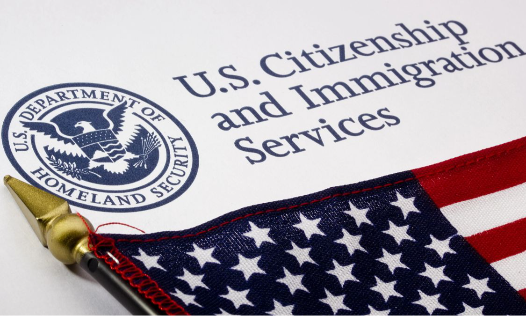Payment is being processed. Please do not refresh or close this page until your payment is complete.
 Book an Appointment
Book an Appointment

USCIS has announced mandatory registration for foreign nationals staying in the U.S. for 30 days or more. A new online system using Form G-325R now makes compliance easier. Find out who must register, how to do it, and what happens if you don’t.
Breaking News for Foreign Nationals in the United States: The U.S. Citizenship and Immigration Services (USCIS) has issued an important reminder regarding the mandatory Alien Registration Requirement for certain non-U.S. citizens residing in the country.
This development, stemming from Executive Order 14159, aims to ensure compliance with existing immigration law. This article highlight what this means for you, whether you’re a long-term visitor or a resident.
What Is Alien Registration?
Alien registration is the process where foreign nationals (non-U.S. citizens) staying in the U.S. for over 30 days must officially register with the government, provide biometric details, and carry proof of registration as required by immigration law.
Who Must Register?
According to USCIS, a significant segment of the foreign national population in the U.S. is now required to register with the federal government. This primarily affects:
1. Individuals aged 14 and older: If you were not registered and fingerprinted during your U.S. visa application process and have been residing in the United States for 30 days or longer, you are likely required to register.
2. Parents and Legal Guardians: You have a responsibility to ensure that any foreign national under the age of 14 in your care is registered.
3. Previously Registered Individuals Turning 14: If you were registered before turning 14, you must re-register and be fingerprinted within 30 days of your 14th birthday.
Important Note: This isn’t just for new arrivals. If you’ve been in the U.S. for more than a month and haven’t gone through this process, pay close attention.
How to Register: A Step-by-Step Guide
USCIS has introduced a new process to facilitate this registration. The key component is the Form G-325R, Biometric Information (Registration).
New Form G-325R: This dedicated form is now available for unregistered aliens to comply with the law.
Online Process: USCIS has established an online system to streamline the registration process. USCIS is gradually releasing details of the online portal, so regularly check their official website for updates and instructions on submitting Form G-325R electronically.
Carry Evidence of Registration
Once you have successfully registered and undergone fingerprinting (unless a waiver applies), DHS will issue you proof of registration.
Carry Your Documentation: Individuals over the age of 18 must carry their registration documentation with them at all times, as required by law.”
The Importance of Compliance
Ignoring this registration requirement can lead to serious consequences. USCIS emphasizes that failure to comply is now a civil and criminal enforcement priority. Penalties may include:
• Misdemeanor Prosecution: You could face criminal charges.
• Fines: Financial penalties may be imposed.
• Incarceration: In severe cases, detention is a possibility.
Safety First: It is crucial to take this requirement seriously to avoid any legal repercussions that could impact your stay and future travel to the United States.
Registration vs. Immigration Status
It’s vital to understand that this registration process is separate from your immigration status.
• No New Status: Registering does not grant you any specific immigration status.
• No Employment Authorization: This registration does not automatically permit you to work in the U.S.
• No Additional Rights or Benefits: Registration does not provide any other rights or benefits under U.S. immigration law.
Recent Changes and Foreign Workers
The USCIS has recently updated Form I-9, reintroducing the term “alien authorized to work” in place of “noncitizen authorized to work,” signaling a shift in official terminology.
This change affects both foreign workers and U.S. employers, particularly those hiring non-citizens. It aligns with recent federal policies emphasizing stricter immigration classifications and registration requirements.
Final Thoughts: What Travelers Need to Do Now
• If you’re staying in the U.S. for over 30 days and haven’t registered — act now.
• Parents, ensure your children under 14 are registered.
• If you’re turning 14 soon — re-register and get fingerprinted.
• Always carry proof if you’re 18 or older.
USCIS is serious about compliance, and failure to register can lead to severe legal consequences. This new system simplifies the process, so take action before it’s too late.
Source: https://travelobiz.com/comply-uscis-alien-registration-form-g-325r/